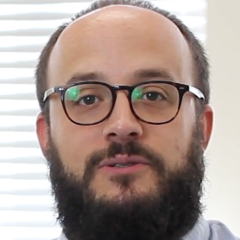You are not currently logged in. Please create an account or log in to view the full course.
Passive Barriers and Innate Immunity
- About
- Transcript
- Cite
Human Immune System
In this lecture, Dr Matthew Ivory (Cardiff University) introduces the human immune system, and some of the tools the body has at its disposal to fight off infections. To begin, we: (i) discuss the passive barriers and innate immune system; before (ii) focusing on the adaptive immune system and how its response differs from the innate immune system; and then delving into T- and B-cells, specifically cytotoxic and helper T-cells, and antibodies and their associated B-cells; following onto (iv) antibodies more specifically and understanding how they have such specificity for an antigen and the different mechanisms they can use to fight pathogens; before finally (v) understanding how monoclonal antibodies have widespread use in medicine and in science, such as in diagnosis, cell signalling, radiolabelling, ELISA tests, and immunofluorescence.
Passive Barriers and Innate Immunity
In the first mini-lecture, we begin to look at how the body fights off disease by looking at the passive barriers that protect us. What do they look like? You may or not already be familiar with some of these barriers, such as the skin, but in addition to that we also discuss the barriers in the eyes, airways and gut that prevent infections from forming. We then introduce the innate immune system, define its main characteristics, distinguish it from the passive barriers that protect us, and then begin to describe some of its components.
Cite this Lecture
APA style
Ivory, M. (2022, August 30). Human Immune System - Passive Barriers and Innate Immunity [Video]. MASSOLIT. https://massolit.io/courses/human-immune-system
MLA style
Ivory, M. "Human Immune System – Passive Barriers and Innate Immunity." MASSOLIT, uploaded by MASSOLIT, 30 Aug 2022, https://massolit.io/courses/human-immune-system

